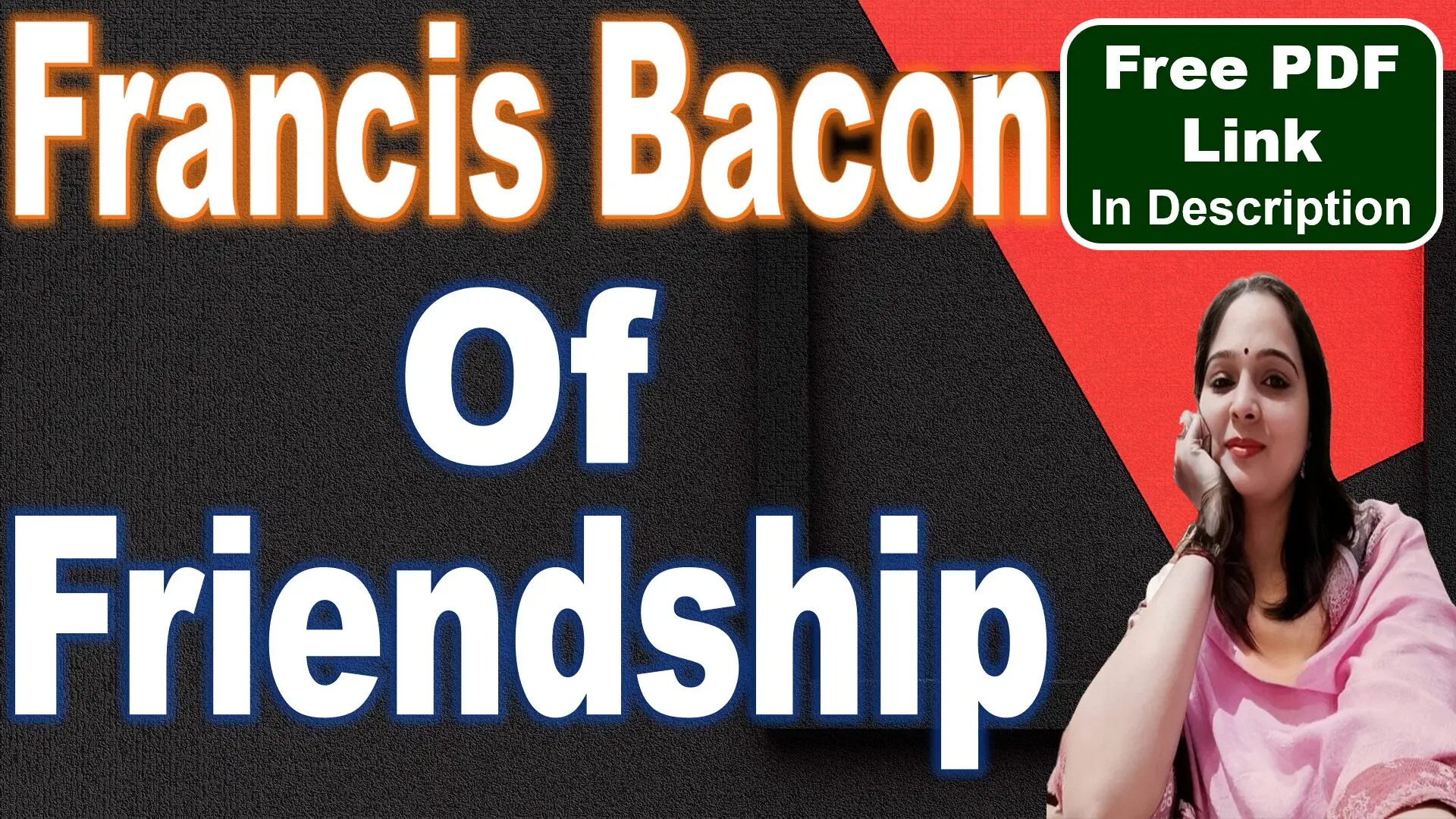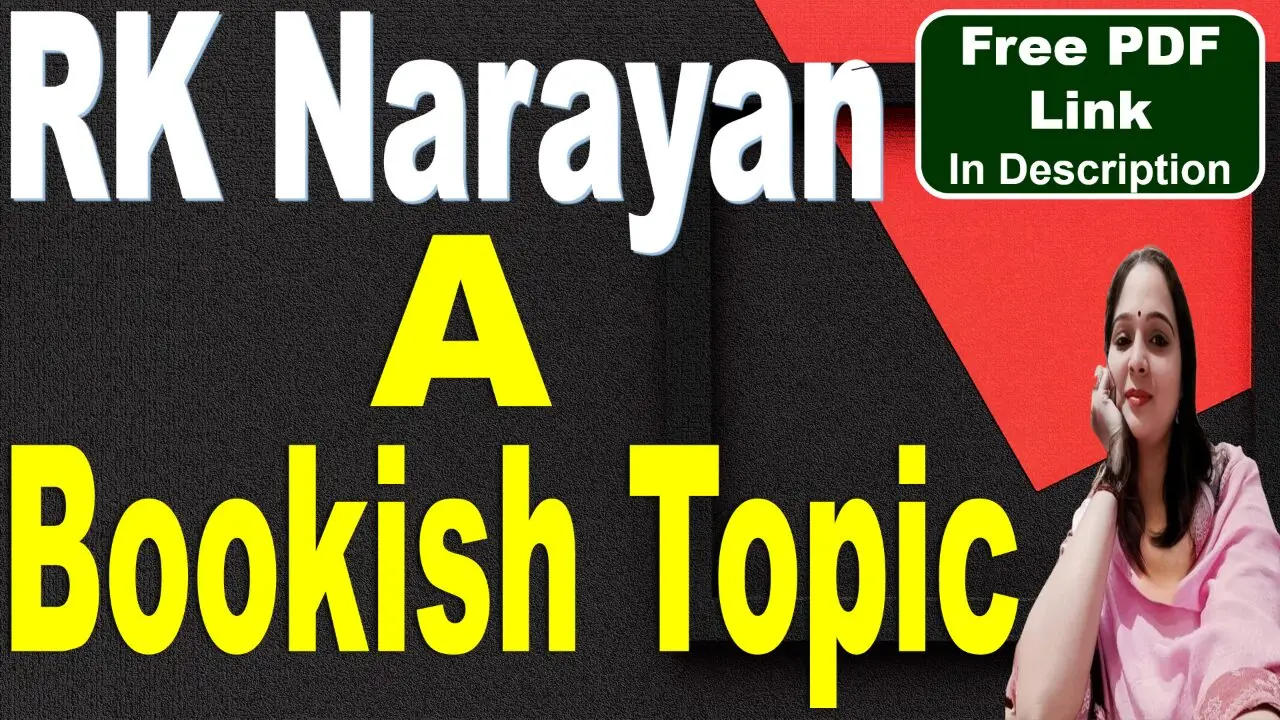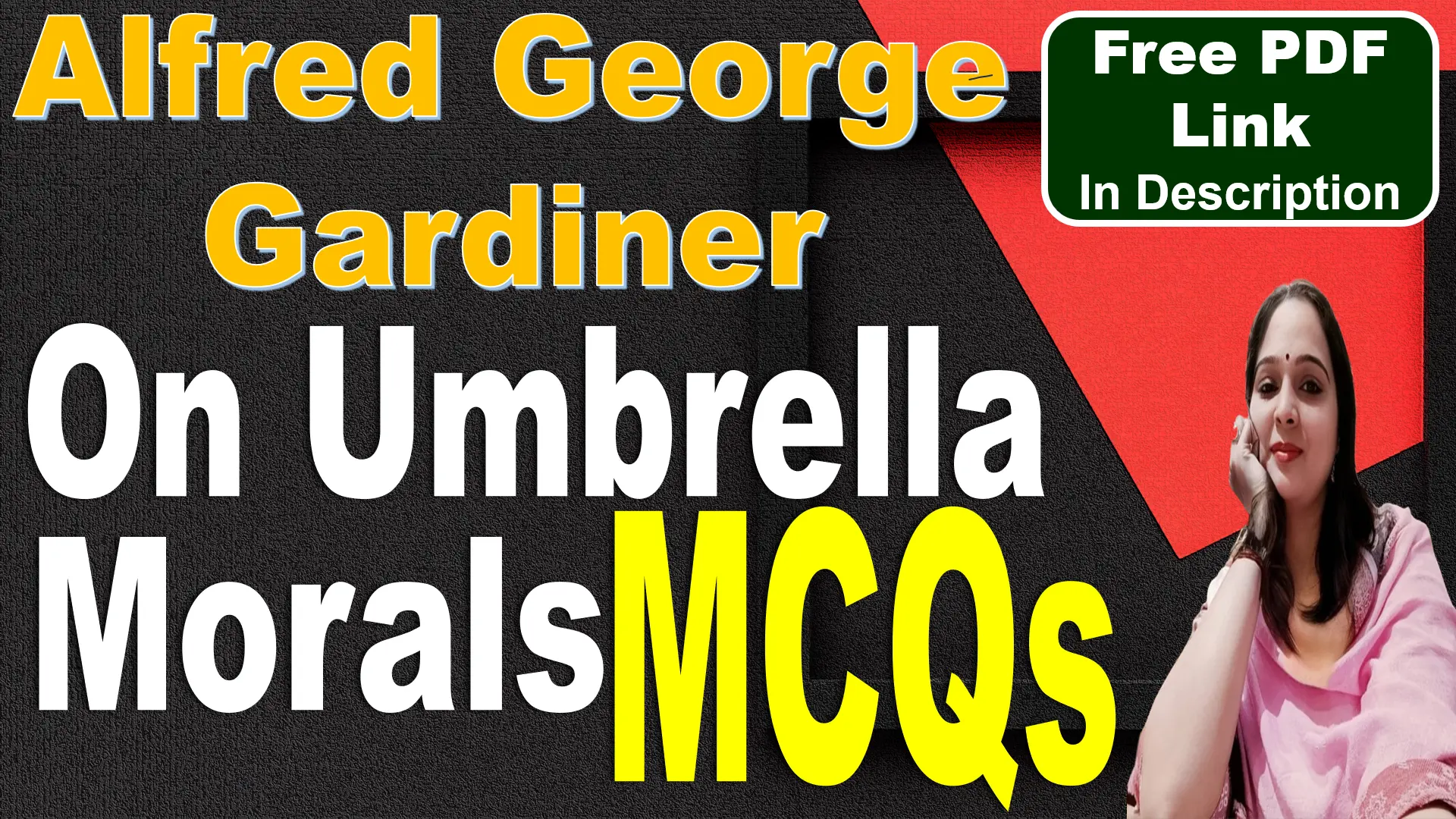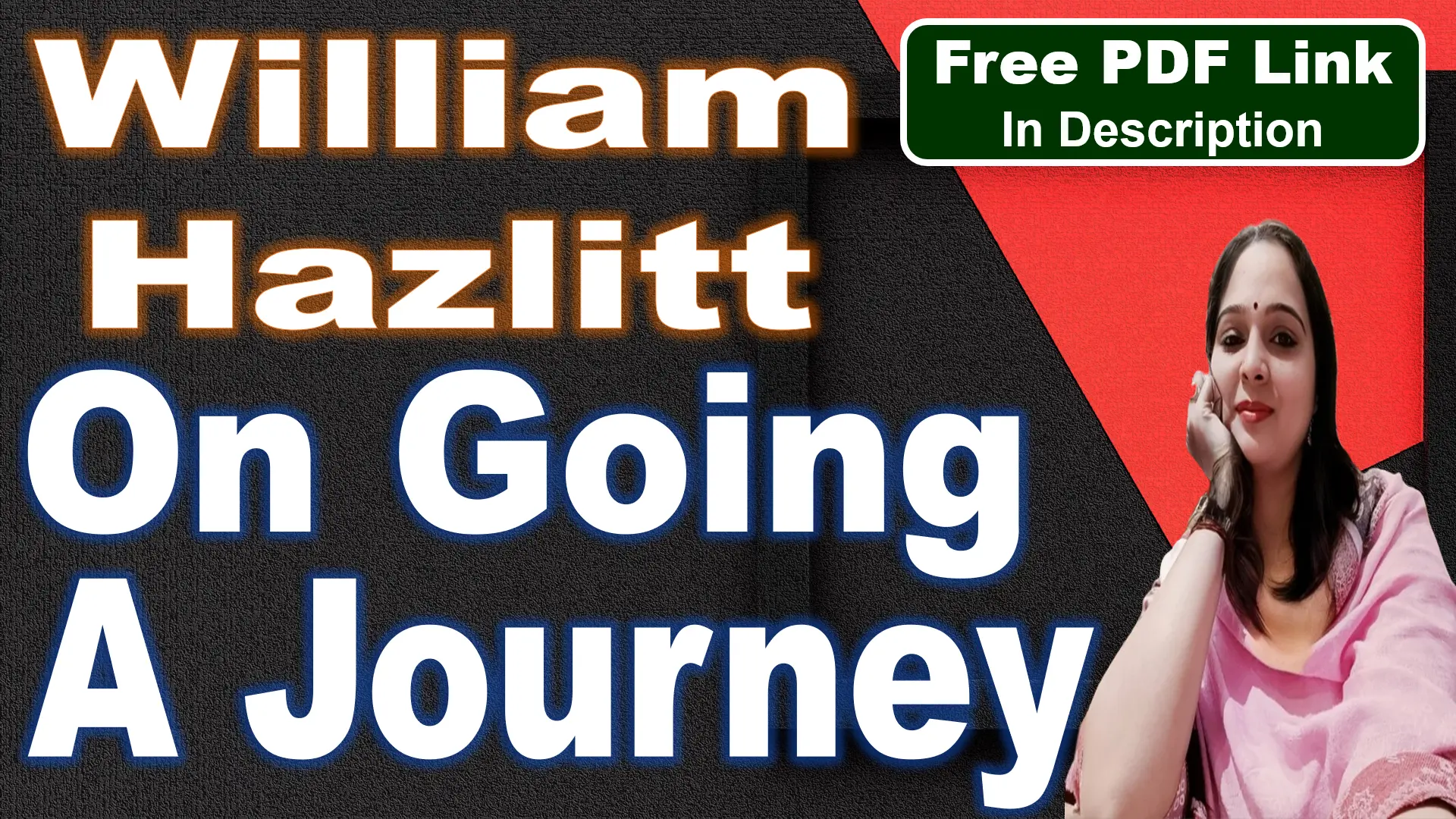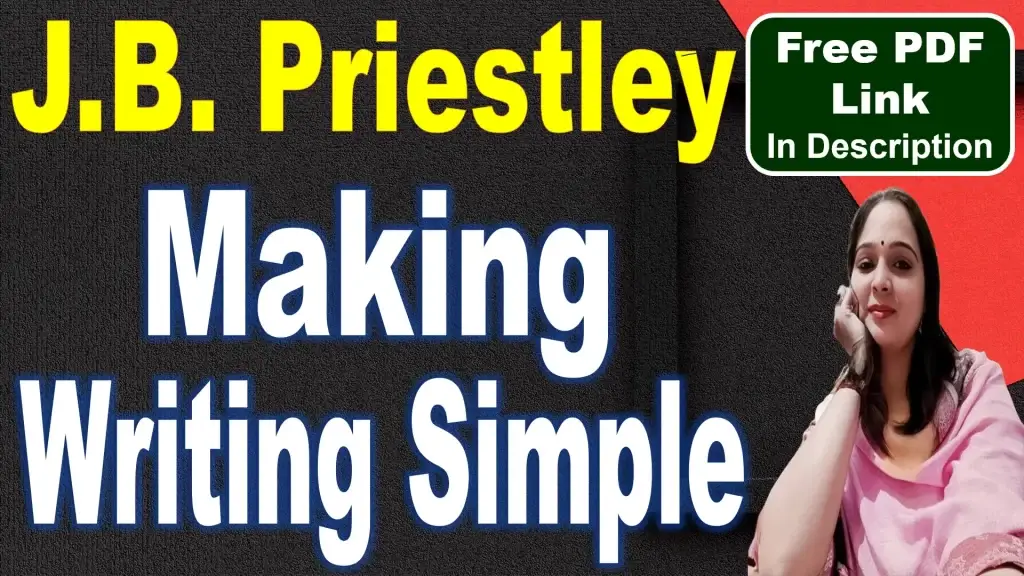
Making Writing Simple by JB Priestley
At the end of a long talk with a youngish critic, a sincere fellow whose personality (though not his values) I respect, he stared at me and then slowly: ‘I don’t understand you. Your talk is so much more complicated subtle – than your writing. Your writing always seems to me too simple.’ And I replied: ‘But I’ve spent years trying to make my writing simple. What you see as a fault, I regard as a virtue.’
There was now revealed to us the gulf between his generation and mine. He and his lot, matured in the early thirties, wanted literature to be difficult. They grew up in revolt against the Mass Communication antics of their age. They did not want to share anything with the crowd. Writing that was hard to understand was like a password to their secret society. A good writer to them was one who made his readers toil and sweat. They admired extreme cleverness and solemnity, poets like political cardinals, critics who came to literature like specialists summoned to consultation at a king’s beside.
A genuine author, an artist, as distinct from hacks who tried to please the mob, began with some simple thoughts and impressions and then proceeded to complicate his account of them, if only to keep away the fools. Difficulty was demanded. Hence the vogue to Donne and Hopkins. Literature had to respond to something twisted, tormented, esoteric, in their own secret natures. In all this there was no pose and here their elders went wrong about them. They could be accused not unjustly of narrowness and arrogance, but not of insincerity. They were desperately sincere in believing that the true artist must hide from the crowd behind a thicket of briers. They grew up terrified of the crowd, who in this new Mass Age seemed to them to be threatening all decent values.
But I was born in the Nineteenth century and my most impressionable years were those just before 1914. Rightly or wrongly, I am not afraid of the crowd. And art to me is not synonymous with introversion. (I regard this as the great critical fallacy of our time). Because I am what is called ‘an intellectual’ – and I am just as much ‘an intellectual’ as these younger chaps – I do not feel that there is a glass wall between me and the people in the nearest factories, shops and pubs. I prefer therefore a wide channel of communications. Deliberately I aim at simplicity and not complexity in my writing. No matter what the subject in hand might be, I want to write something that a pinch I could read aloud in a bar-parlour. (And the time came when I was heard and understood in a thousand bar-parlours).
I do not pretend to be subtle and profound, but when I am at work I try to appear simpler than I really am. Perhaps I make it too easy for the reader, do too much of the toiling and sweating myself. No doubt I am altogether too obvious for the cleverest fellows, who want to beat their brains against something hard and knotty. But then I am not impressed by this view of literature as a cerebral activity.
Some contemporary critics would be better occupied solving chess problems and breaking down cyphers. They are no customers of mine, and I do not display my goods to catch. But any man who thinks the kind of simplicity I attempt is easy should try it for himself, if only in his next letter to The Times. I find it much easier now than I used to do but that is because I have kept this aim in view throughout years of hardwork. I do not claim to have achieved even now a prose that is like an easy pursuasive voice, preferably my own at its best; but this is what I have been trying to do for years, quite deliberately, and it is this that puzzled my friend, the youngish critic who cannot help wanting something quite different.
This habit of simplification has its own little triumphs. Thus, I was asked to pay a birthday tribute, on the air, to C. G. Jung, for whose work and personality I have massive admiration. To explain Jung in thirteen and a half minutes so that the ordinary listener could understand what the fuss was about! My friends said it could not be done. The psychologists said it could not be done. But I can reasonably claim, backed by first class evidence, that I did it. It was a tough little task, but when I had come to the end of it I found, like honey in the rock, a taste of delight.
Summary
Making Writing Simple by JB Priestley was published in 1949 as part of his collection Delight, released by William Heinemann Ltd. in London, Melbourne, and Toronto. It appears as the twenty-sixth essay in the book.
In his essay “Making Writing Simple by JB Priestley,” the author explains why he chooses to write in a clear and simple way, even though a younger critic finds his writing too straightforward. Priestley, born in the 19th century, believes that good writing should connect with everyday people, like those in factories, shops, or pubs. He rejects the idea, popular among younger intellectuals in the 1930s, that literature should be complex and difficult to keep the “crowd” out. To them, hard-to-understand writing was a mark of a true artist, but Priestley sees this as narrow and arrogant, though sincere.
Priestley works hard to make his writing simple, aiming for a style that could be read aloud in a bar and understood by all. This simplicity, he argues in “Making Writing Simple by JB Priestley,” is not easy to achieve—it’s the result of years of effort. He doesn’t care for critics who prefer brain-teasing literature, comparing them to people solving puzzles. As an example of his success, he shares how he managed to explain the complex ideas of psychologist C.G. Jung in a 13.5-minute radio tribute, making it clear to ordinary listeners despite doubts from friends and experts. For Priestley, clear writing is a virtue and a way to communicate widely, bringing him pride and joy when it works.
Essay Analysis
Paragraph 1:
In “Making Writing Simple by JB Priestley,” the author begins with a conversation with a young critic he respects for his honesty, though not his beliefs. The critic claims that Priestley’s writing is too simple compared to his more complex speech, implying that simplicity is a weakness. Priestley firmly disagrees, asserting that he has worked for years to achieve clarity in his writing and sees this simplicity as a strength.
Analysis: This opening introduces the core theme of “Making Writing Simple by JB Priestley”—that simple writing has great value. Priestley uses a personal anecdote to highlight the tension between accessibility and perceived literary depth. His tone is friendly yet firm, reflecting his confidence in his craft and setting the stage for his argument against the elitist literary ideals of the younger generation.
Paragraph 2:
Priestley explains the gap between his generation and the younger one, who came of age in the 1930s. This group favored dense, intellectual literature, rejecting popular media as shallow. They valued writing that was deliberately hard to access, likening literature to an exclusive club. For them, difficulty signaled depth, and they admired writers and critics who kept literature tightly guarded.
Analysis: In this part of “Making Writing Simple by JB Priestley,” the author contrasts his values with those of the younger generation. His tone is observant and gently critical, exposing their preference for complexity as a kind of elitism. Vivid metaphors like “secret society” and “political cardinals” underscore their desire to keep literature exclusive, setting up Priestley’s more democratic view of art.
Paragraph 3:
Priestley delves further into the younger intellectuals’ thinking. They believed true artists should turn simple ideas into complex ones, discouraging mass readership. Their admiration for poets like Donne and Hopkins stemmed from the difficulty of their styles, which matched their introspective and private outlook. Priestley acknowledges their sincerity but calls them narrow and arrogant for fearing the general public.
Analysis: In “Making Writing Simple by JB Priestley,” this paragraph deepens the generational critique. Priestley’s tone remains fair but pointed, showing respect for their honesty while exposing the flaws in their thinking. His metaphor of a “thicket of briers” effectively conveys their desire to protect art from the common people, a stance Priestley rejects.
Paragraph 4:
Priestley offers his own perspective, shaped by his 19th-century upbringing and pre-World War I values. He embraces the general public and believes art should be outward-facing, not withdrawn. As an intellectual who feels connected to working-class people, he aims to write in a way that could be read aloud in a bar—a goal he proudly achieved.
Analysis: This section of “Making Writing Simple by JB Priestley” highlights his inclusive philosophy. His tone is confident and warm, reinforcing his belief that writing should be accessible to all. The bar-parlour imagery symbolizes his ideal audience and shows how simplicity can be a bridge between the writer and the public, not a compromise in quality.
Paragraph 5:
Priestley explains that he avoids sounding overly clever or profound on purpose. He tries to write in a way that’s easier than he thinks, knowing that doing the hard work himself makes reading easier for others. He admits this approach doesn’t impress intellectuals who seek mental challenges, but he disagrees with the idea that literature should be like a puzzle.
Analysis: This paragraph in “Making Writing Simple by JB Priestley” strengthens his argument by revealing his process. Priestley’s tone is candid and slightly rebellious, emphasizing that simplicity is a conscious choice rooted in empathy for the reader. He critiques the mindset that equates complexity with quality, reinforcing his belief that clarity is a literary virtue.
Paragraph 6:
Priestley critiques certain critics who, in his view, would be more suited to solving puzzles or playing chess than enjoying literature. He doesn’t write for them and dares anyone who dismisses simplicity to try crafting a letter to The Times that’s both simple and strong. Achieving simplicity, he says, has taken him years of effort, and while he hasn’t fully mastered it, he keeps striving—much to the confusion of those who favor complexity.
Analysis: This passage of “Making Writing Simple by JB Priestley” defends the discipline behind clear writing. Priestley’s tone is humorous and biting, especially in his comparison of critics to codebreakers. The challenge he offers underscores the skill required to write simply, while his humility adds sincerity to his claim that clarity is a lifelong pursuit.
Paragraph 7:
Priestley concludes with a real-life example: explaining psychologist C.G. Jung’s complex ideas in a short radio segment. Despite skepticism from friends and experts, he succeeded in making the content understandable. The achievement brought him great joy, which he likens to finding “honey in the rock”—something sweet and unexpected.
Analysis: The final paragraph of “Making Writing Simple by JB Priestley” provides compelling proof of his philosophy. His tone is joyful and triumphant, and the metaphor captures his sense of satisfaction. This success story reinforces the essay’s message: that simplicity, when skillfully executed, can communicate profound ideas to a wide audience—Priestley’s ultimate goal.
Key Points
Author
J.B. Priestley (1894–1984) was a British novelist, playwright, essayist, and broadcaster known for his accessible, engaging writing that often reflected his connection to everyday people. Born in Bradford, England, in the late 19th century, Priestley grew up in a working-class environment, which shaped his inclusive worldview. His works, including novels like The Good Companions, plays like An Inspector Calls, and essay collections like Delight (where this essay appears), often blend social commentary with a warm, conversational tone. Priestley’s experiences as a journalist, soldier in World War I, and radio broadcaster during World War II informed his commitment to clear communication, a central focus of this essay. His intellectual yet approachable style made him a beloved figure in 20th-century British literature.
Introduction
The essay, published in 1949 as the twenty-sixth piece in Priestley’s collection Delight (William Heinemann Ltd.), begins with a personal anecdote that sets the stage for its central argument. Priestley recounts a conversation with a young critic who finds his writing too simple compared to his complex speech, viewing simplicity as a flaw. Priestley counters that he has deliberately worked for years to make his writing clear, considering it a virtue. This opening introduces the essay’s main conflict—a generational divide over the value of simplicity versus complexity in literature—and establishes Priestley’s defense of accessible writing. The conversational tone and relatable dialogue draw readers in, framing the essay as both a personal reflection and a broader commentary on literary values.
Structure
Even though Making Writing Simple by JB Priestley is written as one long paragraph, it is still well-organized and easy to follow. Priestley starts by telling a story about a young critic who said his writing was “too simple.” This story helps introduce the main idea of the essay. He then explains how young writers in the 1930s preferred complicated writing, while he believes in keeping things clear and easy to understand. As the essay continues, he shares his opinion that simple writing is not easy—it takes effort and skill. Toward the end, he gives an example of a radio talk he gave about C.G. Jung to show how well simple writing can work. Even though there are no separate paragraphs, the ideas move step by step, from problem to explanation to example. This smooth flow makes the essay strong and matches the message of writing simply and clearly.
Setting
The essay “Making Writing Simple by JB Priestley” lacks a specific physical setting, as it focuses on ideas and reflections rather than a narrative of events. The primary “setting” is the intellectual and cultural context of mid-20th-century Britain, particularly the literary debates of the 1930s and 1940s. Priestley references the critic’s generation, shaped by the 1930s, when mass media (radio, newspapers, early cinema) was growing, prompting some intellectuals to retreat into complex, elitist literature. He also alludes to his own formative years before 1914, a pre-war era he associates with broader, less fearful communication.
Themes
Simplicity vs. Complexity in Writing: The central theme is Priestley’s defense of simple, clear writing as a deliberate, virtuous choice, contrasting with the younger generation’s preference for complex, exclusive literature. He argues simplicity serves a wider audience and requires skill, not laziness.
Generational Divide: Priestley highlights the cultural and intellectual gap between his pre-1914 generation, open to the crowd, and the 1930s generation, who feared mass culture and sought exclusivity. This reflects broader shifts in literary and social attitudes.
Accessibility and Communication: Priestley champions writing that bridges the gap between intellectuals and ordinary people, rejecting elitism. His goal of writing for bar-parlour audiences underscores his belief in art as a tool for connection.
Sincerity and Artistic Integrity: While critiquing the younger generation’s arrogance, Priestley acknowledges their sincerity, showing respect for genuine artistic effort even when he disagrees with its direction.
Effort and Achievement: The essay emphasizes the hard work behind simple writing and the joy of achieving clarity, as seen in Priestley’s radio tribute to Jung, which symbolizes the rewards of perseverance.
Style
Priestley’s style is conversational, direct, and engaging, mirroring the simplicity he advocates.
Personal Anecdotes: The opening dialogue and the Jung example make the essay relatable, grounding abstract ideas in real experiences.
Vivid Metaphors: Images like the “thicket of briers” (for the younger generation’s isolation), “glass wall” (for intellectual separation), and “honey in the rock” (for the joy of success) add color and clarity to his arguments.
Conversational Tone: Phrases like “these younger chaps” and “at a pinch” create a friendly, approachable voice, aligning with his goal of accessibility.
Balanced Critique: Priestley fairly acknowledges the younger generation’s sincerity while firmly critiquing their elitism, maintaining a respectful yet assertive tone.
Humor and Irony: He lightly mocks cerebral critics by comparing them to chess players or code-breakers, adding wit to his argument. The style is concise yet rich, with short sentences and clear language that embody the simplicity Priestley champions, making the essay both persuasive and enjoyable.
Message
The essay’s core message is that simple, clear writing is a valuable and challenging art form that connects intellectuals with everyday people, rejecting the elitist trend of complex, exclusive literature. Priestley argues that accessibility in writing is not a compromise but a deliberate, skillful choice that serves a broader audience. He urges writers to prioritize communication over intellectual showiness, emphasizing that clarity can achieve meaningful impact, as shown by his success in explaining Jung’s ideas. By celebrating simplicity, Priestley advocates for a democratic approach to literature, where art is inclusive, not a barrier, and brings personal fulfillment to the writer who masters it.
J.B. Priestley
Overview: John Boynton Priestley (1894–1984) was a prolific British writer, playwright, novelist, essayist, broadcaster, and social commentator, celebrated for his accessible, engaging works that often reflected his connection to ordinary people and his insights into social issues. His diverse career spanned literature, theater, and radio, making him one of the most influential British literary figures of the 20th century.
Early Life and Background:
Birth and Upbringing: Born on September 13, 1894, in Bradford, West Yorkshire, England, Priestley grew up in a working-class family. His father was a schoolmaster, and his mother, who died when he was young, was a former mill worker. This industrial, community-focused environment shaped his empathy for everyday people.
Education and Early Career: Priestley left school at 16 to work as a junior clerk in a wool firm, but he educated himself through reading and writing. He began publishing essays and poems in local papers, developing his literary voice early on.
World War I: He served in the British Army during World War I (1914–1919), experiencing the horrors of trench warfare, which deeply influenced his social and political views, fostering a commitment to community and justice.
Literary Career:
Novels: Priestley gained fame with novels like The Good Companions (1929), a warm, humorous tale of a traveling theater troupe, and Angel Pavement (1930), which explored urban life. These works showcased his knack for vivid characters and social observation.
Plays: He is best known for his plays, particularly An Inspector Calls (1945), a dramatic critique of social inequality and responsibility, still widely performed and studied. Other notable plays include Time and the Conways (1937) and Dangerous Corner (1932), which experimented with time and human relationships.
Essays and Nonfiction: Priestley’s essays, collected in works like Delight (1949), where “Making Writing Simple” appears, revealed his reflective, conversational style. He wrote on topics from literature to everyday joys, always aiming to connect with a broad audience.
Other Works: He produced literary criticism (The English Novel, 1927), travelogues (English Journey, 1934), and memoirs (Margin Released, 1962), blending personal insight with cultural commentary.
Broadcasting and Public Life:
Radio Broadcasts: During World War II, Priestley’s BBC radio “Postscripts” (1940) boosted national morale with his warm, optimistic talks, reaching millions. His ability to communicate clearly made him a trusted voice.
Social and Political Views: A socialist and advocate for social reform, Priestley co-founded the Common Wealth Party (1942) to promote equality. His works often critiqued class divisions and materialism, urging collective responsibility.
Later Years: He remained active into the 1970s, writing, lecturing, and supporting causes like nuclear disarmament. He was awarded the Order of Merit in 1977 but declined a knighthood, valuing his independence.
Writing Style and Themes:
Style: Priestley’s writing is clear, conversational, and accessible, reflecting his belief in communicating with all readers, as seen in “Making Writing Simple.” He used vivid imagery, humor, and relatable characters to engage audiences.
Themes: His works explore social justice, community, the passage of time, and human connection. He often championed the working class, critiqued elitism, and celebrated life’s small joys, blending optimism with sharp social critique.
Legacy:
Priestley’s influence endures through his timeless plays, novels, and essays. An Inspector Calls remains a staple in education and theater, addressing universal moral questions. His commitment to accessibility and social good continues to resonate, making him a beloved figure in British literature.
He died on August 14, 1984, in Warwickshire, leaving a vast body of work that balances entertainment with profound insight.
Word Meaning
| Tough Word | Meaning in English | Meaning in Hindi |
| Youngish | Fairly young; somewhat young | कुछ-कुछ जवान, अपेक्षाकृत युवा |
| Stared | Looked at something with wide-open eyes for a long time | टकटकी लगाकर देखना |
| Subtle | Delicate, not obvious or easy to notice | सूक्ष्म, जटिल |
| Virtue | A good quality or moral excellence | सद्गुण, नैतिकता |
| Revolt | Rebellion or strong resistance | विद्रोह, बगावत |
| Antics | Foolish, outrageous, or amusing behavior | उटपटांग हरकतें |
| Toil | Hard and tiring work | कठिन परिश्रम |
| Solemnity | Seriousness or dignity | गंभीरता, शिष्टता |
| Cardinals | High-ranking officials in the Catholic Church; important basic principles | कैथोलिक गिरजाघर के वरिष्ठ अधिकारी; मूल सिद्धांत |
| Summoned | Called upon or ordered to appear | बुलाया गया, आदेश दिया गया |
| Beside | Next to; in comparison with | बगल में, की तुलना में |
| Distinct | Clearly different or separate | अलग, स्पष्ट |
| Hacks | Writers or workers who do low-quality work for money | पेशेवर लेकिन घटिया स्तर के लेखक/कामगार |
| Vogue to Donne and Hopkins | A reference to fashion or popularity of poets like Donne and Hopkins | डन और हॉपकिंस जैसे कवियों का प्रचलन/लोकप्रियता |
| Tormented | Experiencing intense suffering or distress | पीड़ित, संतप्त |
| Esoteric | Understood by a small, specialized group | गूढ़, सीमित लोगों के लिए समझने योग्य |
| Thicket of briers | A dense group of thorny shrubs (used metaphorically for difficulty) | कांटेदार झाड़ियों का झुरमुट (जटिलता का प्रतीक) |
| Synonymous | Having the same or nearly the same meaning | समानार्थक |
| Introversion | Focus on internal thoughts and emotions | अंतर्मुखता |
| Critical fallacy | A mistaken belief or argument in criticism or reasoning | आलोचना या तर्क में एक गलत धारणा |
| Intellectual | A person who uses intelligence and reason | बुद्धिजीवी |
| Chaps | Informal term for men | आदमी, लड़के (अनौपचारिक) |
| Deliberately | On purpose; intentionally | जानबूझकर, सोच-समझकर |
| Pinch | A difficult situation; small amount | कठिन परिस्थिति; चुटकी |
| Bar-parlour | A small room in a pub where people drink | शराबखाने का कमरा |
| Profound | Deep, serious, or intense | गहरा, गंभीर |
| Knotty | Complicated, difficult to solve | जटिल, उलझा हुआ |
| Cerebral | Related to the brain or intellect | मस्तिष्कीय, बौद्धिक |
| Contemporary | Belonging to the same time period; modern | समकालीन, वर्तमान |
| Cyphers | Persons of no importance; also codes or secret writing | महत्वहीन व्यक्ति; गुप्त कोड |
| Pursuasive (typo: persuasive) | Convincing, able to influence others | प्रभावशाली, मनवाने वाला |
| Triumphs | Great victories or achievements | विजय, सफलता |
| Tribute | Something said or done to show respect or admiration | श्रद्धांजलि, सम्मान |
| C. G. Jung | Famous Swiss psychiatrist and psychoanalyst | सी. जी. जंग – प्रसिद्ध स्विस मनोविश्लेषक |
| Fuss | Unnecessary worry or excitement over something trivial | बेवजह की चिंता या हंगामा |
| Taste of delight | A feeling or experience of joy or pleasure | आनंद का अनुभव, खुशी की भावना |
Making Writing Simple by JB Priestley Questions and Answers
Very Short Answer Questions
Who wrote “Making Writing Simple”?
J.B. Priestley.
In which book was the essay published?
Delight.
When was Delight published?
1949.
What does the young critic criticize about Priestley’s writing?
It’s too simple.
How does Priestley view simplicity in writing?
As a virtue.
Which generation does the young critic belong to?
The 1930s generation.
What did the 1930s generation value in literature?
Complexity and difficulty.
Why did the younger generation avoid mass communication?
They feared the crowd’s influence.
Which poets did the younger generation admire?
Donne and Hopkins.
What does Priestley call the younger generation’s fear of the crowd?
Narrowness and arrogance.
What era shaped Priestley’s views?
Pre-1914.
What does Priestley reject about art?
That it must be introverted.
Where does Priestley imagine reading his writing aloud?
In a bar-parlour.
What does Priestley say about his writing process?
He tries to seem simpler than he is.
What does Priestley compare some critics to?
Chess players or code-breakers.
What challenge does Priestley pose to those who think simplicity is easy?
Try writing a simple letter to The Times.
What task did Priestley accomplish on the radio?
Explained C.G. Jung’s ideas.
How long was Priestley’s radio tribute to Jung?
13.5 minutes.
What metaphor describes Priestley’s joy in his achievement?
Honey in the rock.
Short Answer Questions
What is the main conflict introduced in the opening of Making Writing Simple by JB Priestley?
The essay Making Writing Simple by JB Priestley begins with a young critic telling Priestley that his writing is too simple compared to his complex speech, viewing simplicity as a flaw. Priestley, however, proudly defends his clear style, explaining he has worked for years to achieve it and sees it as a strength. This sets up the central conflict in Making Writing Simple by JB Priestley: a generational divide over whether literature should be simple and accessible or complex and exclusive. The critic represents a younger group that values difficulty, while Priestley champions clarity for a broad audience. This disagreement drives the essay’s exploration of literary values.
How does Priestley describe the younger generation’s view of literature in Making Writing Simple by JB Priestley?
In Making Writing Simple by JB Priestley, Priestley explains that the 1930s generation, including the young critic, preferred complex, difficult literature to distance themselves from mass media and the general public. They saw hard-to-understand writing as a badge of true artistry, like a secret code for an elite circle. They admired poets like Donne and Hopkins for their intricate styles and believed simple ideas should be made complex to exclude ordinary readers. Priestley notes their sincerity but calls their approach narrow and arrogant, driven by fear of mass culture’s impact on traditional values.
What is Priestley’s personal background, and how does it influence his writing philosophy in Making Writing Simple by JB Priestley?
Priestley’s background plays a vital role in shaping his philosophy in Making Writing Simple by JB Priestley. Born in 1894 in Bradford, England, and raised in a working-class environment, he developed a deep connection with everyday people. His pre-World War I experiences gave him an inclusive, outward-looking approach to art. As a self-educated writer and wartime broadcaster, he emphasized clear communication. In the essay, he rejects the idea that art must be introspective, choosing instead to write simply to reach people in factories, shops, and pubs. This inclusive belief defines his literary values.
Why does Priestley reject the younger generation’s view of art as introverted in Making Writing Simple by JB Priestley?
In Making Writing Simple by JB Priestley, the author calls the belief that art must be inward-looking a “great critical fallacy” of his time. He opposes the 1930s generation’s embrace of complexity and isolation, arguing that true art should engage with the broader public. Unlike younger intellectuals who fear the crowd, Priestley feels closely connected to ordinary workers. He envisions his work being read aloud in bar-parlours, symbolizing his goal of wide accessibility. This rejection of exclusivity reflects his inclusive philosophy, grounded in his early life experiences.
How does Priestley use metaphors to convey his ideas in Making Writing Simple by JB Priestley?
Priestley skillfully uses metaphors throughout Making Writing Simple by JB Priestley to clarify and reinforce his arguments. He likens the younger generation’s complex writing to a “thicket of briers,” suggesting it deliberately keeps out the average reader. He also refers to a “glass wall” dividing intellectuals from the crowd, which he aims to break. Critics are compared to chess players and code-breakers, emphasizing their overly cerebral approach. Finally, his joy in simplifying Jung’s work is described as “honey in the rock,” symbolizing the unexpected sweetness of clarity. These metaphors support the essay’s message of simplicity and accessibility.
What example does Priestley provide to prove the success of his simple writing style in Making Writing Simple by JB Priestley?
To illustrate the power of clarity, Making Writing Simple by JB Priestley shares a real-life success: Priestley was asked to explain the complex ideas of psychologist C.G. Jung in a 13.5-minute radio talk. Despite skepticism from friends and experts, he succeeded, using clear language and strong evidence. This achievement proved his ability to simplify without oversimplifying, reaching a broad audience effectively. Describing the result as “honey in the rock,” he highlights the satisfaction of communicating complex ideas in an accessible way.
How does Priestley defend the difficulty of writing simply in Making Writing Simple by JB Priestley?
In Making Writing Simple by JB Priestley, the author argues that simplicity is hard-won, not a sign of lack of depth. He challenges critics who dismiss simple writing, suggesting they try composing something clear like a letter to The Times. Priestley reveals that it took him years of hard work to make his writing appear easy. Though he strives for a smooth, persuasive style, he admits it’s a work in progress. This defense underlines that simplicity, far from being effortless, requires skill, discipline, and empathy for the reader.
What role does the bar-parlour play in Making Writing Simple by JB Priestley?
In Making Writing Simple by JB Priestley, the bar-parlour becomes a powerful symbol of the author’s literary philosophy. Priestley imagines his work being read aloud and understood in pub settings, surrounded by everyday people. This image illustrates his commitment to writing that’s accessible to all, not just the intellectual elite. He proudly states he has achieved this goal, reinforcing his belief that writing should invite rather than exclude. The bar-parlour represents community, clarity, and connection—central values in Priestley’s essay.
How does Priestley balance critique and fairness in Making Writing Simple by JB Priestley?
Priestley demonstrates a fair and thoughtful approach in Making Writing Simple by JB Priestley by critiquing the younger generation’s preference for complex writing while acknowledging their sincerity. He recognizes that they weren’t being pretentious, but were genuinely concerned about preserving artistic standards in a mass-media age. However, he maintains that their elitism and fear of the crowd are misguided. By understanding their motives without excusing their narrowness, Priestley creates a balanced argument that strengthens his case for accessible literature.
What is the significance of the essay’s closing metaphor, “honey in the rock,” in Making Writing Simple by JB Priestley?
The metaphor “honey in the rock” in Making Writing Simple by JB Priestley captures the joy Priestley felt after explaining C.G. Jung’s complex theories in a way that ordinary listeners could understand. It suggests a sweet reward discovered in an unexpected place, symbolizing the fulfillment that comes from achieving clarity through effort. This image resonates with the title’s theme and the essay’s place in his Delight collection. It affirms Priestley’s belief that simple writing, though challenging, yields profound satisfaction and connection.
Essay Type Questions
Write the Critical Appreciation of “Making Writing Simple by JB Priestley”.
Introduction
The essay “Making Writing Simple by JB Priestley,” published in 1949 as part of his collection Delight, is a compelling defense of clear, accessible writing in an era when intellectual elitism favored complexity. Through a personal anecdote, vivid metaphors, and a conversational tone, Priestley argues that simplicity is a deliberate, skillful virtue that connects writers with everyday people, rejecting the younger generation’s preference for exclusive, difficult literature. This critical appreciation examines the essay’s thematic depth, structural coherence, stylistic strengths, and cultural significance, highlighting its enduring relevance.
Thematic Depth
The essay’s central theme is the virtue of simplicity in writing, which Priestley champions as both a craft and a democratic ideal. He contrasts his philosophy with the 1930s generation’s belief that literature should be complex to exclude the masses, revealing a generational divide rooted in differing views of art’s purpose. Priestley’s emphasis on accessibility reflects his broader commitment to social connection, a recurring motif in his works like An Inspector Calls. Themes of sincerity, effort, and the joy of achievement emerge as he acknowledges the younger critics’ genuine motives while celebrating his own success in simplifying C.G. Jung’s ideas. These themes elevate the essay beyond a literary debate, touching on universal questions of communication and human connection.
Structure
Despite being written as a single paragraph, the essay maintains remarkable coherence through a logical flow of ideas that guides readers from conflict to resolution. It opens with a personal anecdote about a young critic’s critique of Priestley’s “too simple” writing, establishing the debate. This transitions into an analysis of the 1930s generation’s preference for complex, exclusive literature, followed by Priestley’s contrasting philosophy of inclusive, clear writing aimed at ordinary people. He defends the skill required for simplicity, challenging critics’ assumptions, and concludes with a triumphant example of his radio tribute to C.G. Jung, proving simplicity’s effectiveness. This seamless progression, marked by clear shifts in focus, ensures the essay remains focused and persuasive, embodying the clarity Priestley advocates.
Style
Priestley’s style is the essay’s greatest strength, embodying the clarity he champions. His conversational tone, marked by phrases like “these younger chaps” and “at a pinch,” creates a friendly, relatable voice that invites readers into the discussion. Vivid metaphors, such as the “thicket of briers” for the younger generation’s isolation or “honey in the rock” for his joy, add poetic depth without sacrificing accessibility. Light humor, like comparing critics to chess players, balances his sharp critique of elitism with warmth. The use of personal anecdotes—the critic’s dialogue and the Jung tribute—grounds abstract ideas in real experiences, making the essay both persuasive and emotionally resonant. This stylistic alignment with his message reinforces the essay’s impact.
Cultural and Historical Context
Written in post-World War II Britain, the essay reflects a cultural moment when mass media (radio, newspapers) was reshaping communication, prompting some intellectuals to retreat into esoteric literature. Priestley, shaped by his pre-1914 upbringing and wartime broadcasting, rejects this elitism, aligning with a democratic ethos of rebuilding society through shared understanding. His reference to bar-parlours and radio audiences evokes a working-class, communal Britain, contrasting with the younger generation’s fear of mass culture. The essay thus engages with broader debates about art’s role in a changing world, making it a significant commentary on mid-20th-century literary values.
Critical Evaluation
Priestley’s essay is highly effective in arguing for simplicity as a literary virtue, supported by his skillful blend of logic, emotion, and personal experience. His balanced critique of the younger generation—acknowledging their sincerity while exposing their arrogance—demonstrates intellectual fairness, strengthening his position. The Jung example is a powerful climax, proving simplicity’s practical impact. However, the essay could be critiqued for its limited exploration of when complexity might be valuable, as Priestley’s focus on accessibility occasionally feels one-sided. Additionally, his nostalgic view of pre-1914 society may oversimplify historical realities. Despite these minor limitations, the essay’s clarity, wit, and universal themes make it a standout piece in Delight.
Enduring Relevance
“Making Writing Simple by JB Priestley” remains relevant in today’s world, where digital communication often prioritizes brevity and clarity, yet academic and artistic circles can still favor complexity. Priestley’s call for inclusive communication resonates in debates about making knowledge accessible to diverse audiences, from education to social media. His emphasis on effort and joy in clear writing inspires writers to value craft over pretension. As part of Delight, the essay also celebrates the personal satisfaction of meaningful work, a timeless message for creators and communicators.
Conclusion
“Making Writing Simple by JB Priestley” is a masterful essay that combines intellectual rigor with heartfelt conviction. Priestley’s defense of simplicity is not just a literary stance but a philosophy of connection, brought to life through a clear structure, engaging style, and relatable examples. Its critique of elitism and celebration of clarity make it a significant contribution to literary discourse, while its warmth and optimism reflect the spirit of Delight. The essay’s enduring appeal lies in its universal call to communicate with purpose and joy, cementing Priestley’s legacy as a writer for all.
Write Long Note on J.B. Priestley as Essayist.
Introduction
J.B. Priestley (1894–1984) was a famous British writer known for his novels, plays, and radio talks, but his essays reveal a special side of his talent. His essay collections, especially Delight (1949), are easy to read, full of warmth, and connect deeply with everyday people. He wrote about books, life, and society in a clear and friendly way, making complex ideas simple and enjoyable. This note explores Priestley’s essay style, topics, background, and his lasting importance, using his well-known essay “Making Writing Simple” as a key example.
Style of Priestley’s Essays
Priestley’s essays feel like conversations with a friend—clear, warm, and welcoming. He avoided difficult vocabulary, choosing simple, everyday language that anyone could understand. In “Making Writing Simple,” he argues for clarity in writing and uses rich imagery, like calling complex literature a “thicket of briers” (a tangled bush of thorns) and describing joy as “honey in the rock” (a surprising sweetness). He often includes personal stories—such as his interaction with a young critic or a radio talk about C.G. Jung—to make his ideas relatable. His light humor, like saying critics are better at puzzles than books, keeps the tone engaging. This friendly, down-to-earth style reflects both his love for ordinary people and his skill from years of radio speaking.
Main Topics
Priestley’s essays cover many themes, showing his broad interests and deep thought. One central theme is the importance of simple communication, which he discusses in “Making Writing Simple.” He also writes about the beauty of everyday life, such as time spent in pubs, small pleasures, and moments of peace. In Delight, he celebrates life’s little joys—like good music or quiet evenings—which uplift readers’ spirits. His more serious essays explore social issues, time, and change, often criticizing snobbery and unfairness in society. Even when addressing serious problems, his tone remains hopeful, urging readers to find meaning and joy in life.
Background and Influences
Priestley’s personal life had a strong impact on his writing. Born in Bradford, England, into a working-class family, he grew up surrounded by ordinary people, which made him want to write for them. He educated himself by reading widely and was inspired by essayists like Charles Lamb, known for a warm, personal style. His service in World War I exposed him to life’s hardships, while his World War II radio talks helped him master the art of clear, direct communication. During a time when some modern writers used overly complex styles (like T.S. Eliot), Priestley stood for writing that was simple and meaningful for all.
Important Essay Collections
Priestley’s major essay collections reflect his variety and talent.
The Balconinny (1929) includes early, humorous reflections on books and life.
Delight (1949) is a joyful book of short pieces about things he loved, written to cheer people up after the war.
Thoughts in the Wilderness (1957) deals with more serious political and social themes, still in clear language.
Essays of Five Decades (1968) brings together the best of his essays, showing how his thoughts developed over time.
These collections prove that he could write about almost anything—art, fairness, personal happiness—with warmth and clarity.
Why “Making Writing Simple by JB Priestley” Stands Out
“Making Writing Simple by JB Priestley” is a perfect example of Priestley’s essay style and beliefs. He answers a young critic who complains that his writing is “too simple,” and he explains why simplicity is a strength, not a weakness. The essay moves smoothly in a single paragraph, starting with the critic’s complaint, then Priestley’s ideas, and ending with a story about his radio talk explaining Jung’s deep theories. It covers all of Priestley’s favorite ideas—simplicity, connection, and sincerity—while using his usual warm tone, personal anecdotes, and vivid language. It shows his belief that writing should be for everyone, not just for a few intellectuals.
How People Saw His Essays and His Impact
Readers loved Priestley’s essays for their warmth and easy style. Delight became especially popular after the war, when people needed comfort and hope. Some literary critics dismissed his simple style as “too basic,” but most readers appreciated how deeply he understood ordinary life. Today, his essays are still studied for their clarity, emotional depth, and strong social messages. In a modern world full of complex media and fast communication, Priestley’s essays remind writers and readers that simplicity and honesty still matter.
Conclusion
J.B. Priestley’s essays are a treasure, showing his unique gift for turning big ideas into readable, heartwarming pieces. His friendly tone, vivid imagery, and personal reflections make his essays enjoyable and lasting. His working-class background, war experiences, and time as a radio speaker shaped his clear voice and desire to connect with ordinary people. Through collections like Delight and essays like “Making Writing Simple,” Priestley showed that writing can be deep and delightful at the same time. He remains an inspiring example for anyone who believes that good writing is not about being clever—it’s about being clear and caring.
